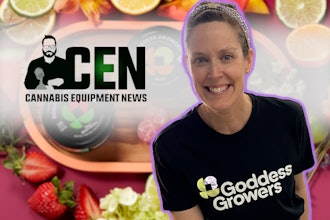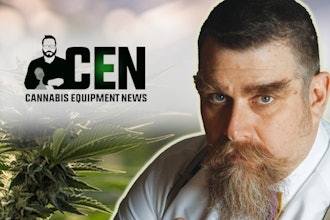Editor's Note: Download the audio version below and click here to subscribe to our newsletter.
Jessica Tonani was working in the traditional biotech industry, specifically genomic analysis, when she became sick. Essentially, her stomach quit working, and she came to cannabis as a medical patient. She discovered a remarkable medicinal plant but found it really hard to navigate the industry from a patient's perspective. So, she convinced some friends to start a biotech company, Verda Bio, to make more consistent products, better educate patients on how to use them and offer a more consistent experience.
The Washington State medical cannabis market opened about 15 years ago, and while some things have changed, many patients are still frustrated by inconsistent experiences. Tonani, still a medical user, believes that if she can stabilize the genetics, the industry can make more consistent products with predictable results.
Verda Bio was founded nine years ago, and it has been a rough road. Tonani wanted to create a research company, but at the time, Washington State only had producer (grower) licenses. When she asked how she could get a research license, regulators said she couldn't. So, she took matters into her own hands and spent about four years changing the law. Eventually, she received the first cannabis research license issued by a U.S. state.
Still, Tonani admits that cannabis is a market that keeps one arm tied behind your back at all times. She says operators can't take anything, from suppliers to banking, for granted, and everything cannabis-related has huge operating costs surrounding it.
Verda Bio has two divisions, a commercial hemp business and a high THC side that is still in research mode.
On the hemp side, Verda Bio works with farmers to help scale hemp production. The company plants about 200,000 hemp seeds each year. Then, about six years ago, the hemp business stumbled into a CPG opportunity. The company was playing around with some new CBD product formulations when the co-founder's mother started testing them at home. She enjoyed the products, shared them with her friends, and Basic Jane was born shortly thereafter. Basic Jane manufactures a line of CBD topical products, transdermal patches and mints.
In the high THC division, Verda Bio is selectively breeding plants for traits with medicinal and wellness purposes. The products aren't yet commercially available as the company selects plants and tries to stabilize traits.
While most consumers know cannabis for THC and CBD, Tonani says the plant is a treasure trove of new molecules. In 20 years, we might look back on this time as a dark age that hadn't yet realized the plant's entire potential. However, discovering new use cases for molecules has also flipped the science paradigm upside down into an inverse clinical development where patients, not doctors, are ushering new potential treatments into the limelight.
On this episode of the Cannabis Equipment News podcast, Editor-in-Chief David Mantey and Tonani also discuss:
- The laws she wants to change next
- Why her company built a proprietary cannabis plant library
- The importance of sequencing plant genomes
- The equipment she can't live without, like the 1260 Infinity II LC System from Agilent that Verda Bio won in a contest
- Her pursuit for strategic collaborations, including networks to clinical research projects and grower networks
- Problems with state labs, potency testing and the benefits of bringing testing in-house
- And whether it will ever be possible to have absolute control over cannabis variability.
Please make sure to like, subscribe and share the podcast. You could also help us out by giving the podcast a positive review. Finally, to email the podcast or suggest a potential guest, you can reach David Mantey at David @cannabisequipmentnews.com.






















